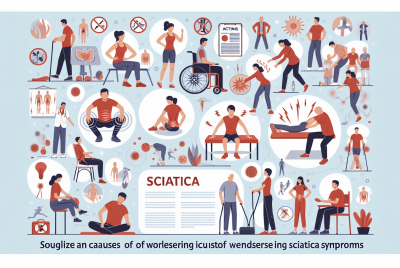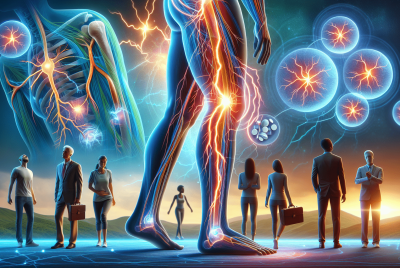Natural Remedies for Back Pain
Introduction
Back pain is a common ailment that affects millions of people worldwide. It can be caused by various factors, including muscle strain, poor posture, injury, or underlying medical conditions. Dealing with back pain can be challenging, but there are natural remedies available that can help alleviate discomfort and promote healing. In this article, I will share my knowledge and experiences as a knowledgeable advisor and participant in natural remedies for back pain, providing helpful suggestions on the best remedies and how to apply them effectively.
Understanding Back Pain
Before delving into the natural remedies, it’s important to understand the nature of back pain. Back pain can arise from different sources, such as muscle spasms, herniated discs, arthritis, or structural issues. Identifying the underlying cause is crucial in determining the most appropriate remedies for relief. Additionally, back pain can manifest in various forms, including lower back pain, upper back pain, or radiating pain down the legs. Understanding the type of back pain helps in tailoring the remedies to address specific symptoms.
Natural Remedies for Back Pain
There are several natural remedies that have shown promise in relieving back pain and promoting healing. These remedies can be utilized individually or in combination to suit individual preferences and needs. Let’s explore some of the most effective options:
1. Hot and Cold Therapy
Hot and cold therapy is a simple and accessible remedy that can provide quick relief for back pain. Applying heat to the affected area helps relax muscles, improve blood flow, and alleviate stiffness. Heating pads, warm baths, or hot packs can be used for heat therapy. Conversely, cold therapy can reduce inflammation and numb the area, providing temporary pain relief. Cold packs, ice wraps, or even a bag of frozen peas can be applied to the affected area for cold therapy.
2. Exercise and Stretching
Engaging in regular exercise and stretching can significantly improve back pain. Exercise strengthens the muscles that support the spine, enhances flexibility, and promotes proper posture. Low-impact activities such as swimming, walking, or yoga are particularly beneficial for individuals with back pain. Stretching exercises help elongate the muscles, reduce tension, and increase mobility. Simple stretches targeting the back, hamstrings, and hips can be performed daily to relieve pain and prevent further discomfort.
3. Herbal Remedies and Supplements
Herbal remedies and supplements have long been used for their medicinal properties in various cultures. Some herbs possess anti-inflammatory, analgesic, and muscle relaxant properties that can aid in back pain relief. Popular herbal remedies include turmeric, ginger, devil’s claw, and white willow bark. These can be consumed as teas, capsules, or applied topically as ointments. Additionally, supplements such as omega-3 fatty acids, glucosamine, and chondroitin may provide additional support for joint health and pain reduction.
4. Massage and Acupuncture
Massage therapy and acupuncture are alternative treatments that can provide relief for back pain. Massage helps relax tense muscles, improve circulation, and reduce stress. Professional massage therapists can target specific areas of pain and apply appropriate techniques for optimal results. Acupuncture, on the other hand, involves inserting thin needles into specific points on the body to restore energy flow and alleviate pain. Both massage and acupuncture should be performed by trained professionals for safe and effective outcomes.
5. Proper Posture and Ergonomics
Maintaining good posture and employing proper ergonomics are essential for preventing and managing back pain. Slouching or sitting in awkward positions can strain the back muscles and exacerbate pain. It’s important to sit and stand with a straight spine, supporting the natural curves of the back. When sitting for prolonged periods, using supportive chairs or cushions and taking regular breaks to stretch can alleviate discomfort. Additionally, ergonomic adjustments in workstations, such as adjusting desk height and chair position, can help reduce the strain on the back.
6. Stress Management and Relaxation Techniques
Stress and tension can contribute to back pain or exacerbate existing discomfort. Managing stress levels and incorporating relaxation techniques into daily routines can have a positive impact on back pain. Engaging in activities like meditation, deep breathing exercises, or practicing mindfulness can promote relaxation, reduce muscle tension, and improve overall well-being. Taking time for self-care, engaging in hobbies, or seeking professional counseling can also help alleviate stress and its impact on back pain.

Precautions and Considerations
While natural remedies can be effective in managing back pain, it’s important to exercise caution and consider individual circumstances. If the pain persists or worsens, it’s advisable to consult with a healthcare professional for a proper diagnosis and guidance. Certain conditions, such as fractures, infections, or spinal abnormalities, may require medical intervention rather than relying solely on natural remedies. It’s crucial to listen to your body, avoid activities that aggravate the pain, and seek appropriate medical attention when necessary.
10 Benefits of Natural Back Pain Remedies Over Conventional Medication:
- Reduced Side Effects: Natural remedies for back pain often have fewer side effects compared to conventional medications, which can cause drowsiness, digestive issues, or allergic reactions.
- Holistic Approach: Natural remedies focus on addressing the root causes of back pain rather than just alleviating symptoms. They promote overall well-being and can have positive effects on other aspects of health.
- Long-Term Health: Natural remedies aim to promote long-term health and healing by supporting the body’s natural processes. They can help strengthen muscles, improve posture, and enhance overall spine health.
- Minimized Dependency: Natural remedies offer an alternative to long-term reliance on pain relief or anti-inflammatory medication. By addressing the underlying causes, they can reduce the need for ongoing medication use.
- Personalized Treatment: Natural remedies can be tailored to individual needs and preferences. They offer a wide range of options, allowing individuals to find the remedies that work best for them and adjust their treatment accordingly.
- Cost-Effectiveness: Natural remedies can be more cost-effective in the long run, as they often involve lifestyle changes, exercises, and the use of readily available herbs or supplements, which can be less expensive than prescription medications.
- Lower Risk of Drug Interactions: Natural remedies generally have a lower risk of interacting with other medications compared to conventional drugs. This makes them a safer choice for individuals who are already taking multiple medications.
- Promotes Active Engagement: Natural remedies often require individuals to actively participate in their treatment. This active engagement empowers individuals to take charge of their health and encourages a proactive approach to managing back pain.
- Supports Overall Wellness: Natural remedies for back pain often involve lifestyle adjustments such as exercise, stress management, and healthy habits. These changes not only help alleviate back pain but also contribute to improved overall health and well-being.
- Sustainable Approach: Natural remedies for back pain align with a sustainable and eco-friendly approach to healthcare. They rely on natural ingredients, reduce dependency on synthetic drugs, and often have a smaller environmental footprint.
It’s important to note that while natural remedies can be effective for many individuals, each person’s experience may vary. It’s always recommended to consult with healthcare professionals for personalized advice and to ensure the chosen remedies are suitable for individual circumstances.
Conclusion
Back pain can significantly impact one’s quality of life, but there are effective natural remedies that can provide relief and promote healing. Incorporating hot and cold therapy, exercise and stretching, herbal remedies and supplements, massage and acupuncture, proper posture and ergonomics, as well as stress management techniques, can help alleviate back pain and improve overall well-being. Remember to assess the specific needs of your body, consult healthcare professionals when required, and make informed decisions regarding the best course of action for your back pain management.
FAQs
FAQ 1: Can natural remedies completely cure back pain?
Natural remedies can provide significant relief from back pain, but complete cure depends on the underlying cause and individual circumstances. It’s important to consult with healthcare professionals for a proper diagnosis and to determine the most appropriate treatment options.
FAQ 2: How long does it take for natural remedies to work?
The time it takes for natural remedies to work can vary depending on the individual and the severity of the back pain. Some individuals may experience relief within a few days or weeks, while others may require more time for noticeable improvements. Consistency and patience are key when using natural remedies.
FAQ 3: Are there any side effects of herbal remedies for back pain?
Herbal remedies may have side effects or interact with certain medications. It’s essential to consult with a healthcare professional or herbalist before starting any herbal treatment to ensure safety and to avoid potential complications.
FAQ 4: Can I perform exercises for back pain at home?
Yes, many exercises for back pain can be performed at home. However, it’s advisable to consult with a healthcare professional or physical therapist to determine the most suitable exercises for your specific condition and to ensure proper form to prevent further injury.
FAQ 5: Can stress really cause back pain?
Yes, stress can contribute to the development or exacerbation of back pain. Stress causes muscle tension, which can lead to discomfort and pain in the back. Incorporating stress management techniques, such as relaxation exercises or counseling, can help alleviate both stress and back pain.




